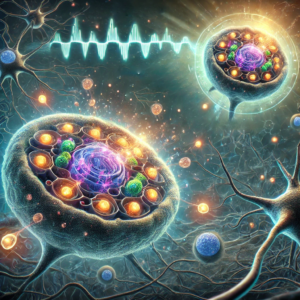Topics
Articles about Studies
Neurological
Does Rapamycin Protect Neuron Cells?
Tumor Susceptibility Gene 101 (TSG101) plays a part in the cell's usual controls on growth or repair, a process that helps cells clear excess proteins. Cleaning ht cell from these excess proteins is called autophagy, and it keeps neuron cells healthy. Rapamycin is a chemical that triggers autophagy. The study showed that Rapamycin increased TSG101 protein level to…
Neurological
Chronic Rapamycin Treatment Fixes Memory in Mice with Alzheimer’s-Like Brains
Fixing Forgetfulness: New Clue to Fighting AD? This study involved Assistant Professor Ai-Ling Lin from UT Health San Antonio. Other researchers from the Imaging Research Institute and the Barshop Institute for Aging and Longevity Studies also participated. The aim was to see how rapamycin can help mice with induced Alzheimer's disease. There were three critical…
Heart, Kidney, Liver & Lungs
Tiny Packages of Rapamycin: A New Way to Treat Kidney Disease?
Special Medicine for Kidneys with Polycystic Disease This study looks at how well the RapaMNP medicine works in treating kidneys with polycystic disease (cyst growth). The medication targets and slows down the cyst growth in the kidneys of mice with a certain gene problem. This condition is similar to the human disease ADPKD. ADPKD is…
Immunity
Turning Back Time: Rapamycin and mTOR May Prevent Age-Related Disease Risks
Getting Older: The Cellular Link to Disease Aging is a complex and inevitable part of life. As we grow older, the cells inside our bodies don't work quite as well as they used to. This makes us more vulnerable to getting certain diseases. A protein called mTOR is a central player in this process. It…
Gastrointestinal
How Rapamycin and Fasting Help Prevent Indomethacin Damage to the Gut
How Rapamycin Protects from Indomethacin Damage Pain meds like ibuprofen can be great for aches and pains, but too much is harmful to health. NSAIDs can wreak havoc with your gut, causing stomach sores like ulcers in the small intestine. A study from Japan looked into not only why this happens but also how to…
Cancer
Phase I Trial: Can New Rapamycin Tests Slow Down Early Prostate Cancer?
Early Prostate Cancer Trial Has Promising Signs The purpose of this Phase I trial was to see if encapsulated rapamycin (eRapa) is safe for men with early signs of cancer. That involved closely monitoring patients at low or medium level risk. Dr. Phillip Kemp Bohan at Brooke Army Medical Center led the study. The primary…
Aging & Longevity
Rapamycin May Hold the Answer! It’s Time for a New Alzheimer’s Disease Trial
The Next Alzheimer's Disease Trial Needs Rapamycin This thought-provoking study advocates for human rapamycin trials in Alzheimer's disease. Why this drug? Rapa is already known for its anti-aging properties, as demonstrated in multiple experiments. Alzheimer's is an age-related illness. The theory is that targeting the aging processes may help slow or even prevent AD and…
Immunity
Understanding Cellular Stress Response: The Role of Your Molecular Machinery
Study Uncovers How Cells React to Starvation A research team at Washington University has found another way that cells deal with stress. Led by Kyusik Kim, the team saw that when a key molecule (eIF4E) gets used up, it sets a unique stress response in motion within the cell. This previously unknown process helps the…
Skin, Hair & Oral
Treating Gum Disease with Rapamycin Improves Markers in Aged Mice
Treating Gum Disease with an Anti-Aging Drug! Scientists at the University of Washington and The Jackson Laboratory tested rapamycin on aging mice. The purpose of this experiment was to see if Rapa was a possible solution for treating gum disease. Researchers were also keen to explore oral health more generally and its impact on well-being.…
Fat Reduction
Weekly Doses of Rapamycin Improves Lifespan and Health in Obese Mice
Junk Food, Obesity, and Longer Life! In the fight against aging, a new study on mice by researchers in Buffalo, NY, showed promising results. This experiment on mice revealed some interesting outcomes. Researchers injected the animals weekly with the drug rapamycin (Rapa). They fed the test subjects fattening foods to get them into an obese…









